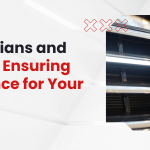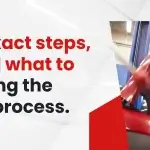Planning on selling a vehicle, changing ownership, or re-registering in Victoria? At some stage, the word “roadworthy” will appear, and with it, a couple of questions. What is a roadworthy certificate, anyway? Who provides it? And how much does it cost?
This guide is written for Melbourne drivers who want real answers without the mechanical confusion. Whether you’re an expert driver or na ewbie in this process, here’s everything you need to know about a roadworthy certificate in Melbourne.
What Is a Roadworthy Certificate?
A roadworthy certificate, or RWC, is a legal certificate given by a VicRoads-licensed vehicle tester. It certifies that a car is safe enough to drive on Victorian roads. It doesn’t mean that the vehicle is in its optimal state, it just means that it is allowed and safe on Victorian Roads.
This certificate is not a guarantee that a vehicle is mechanically perfect. It is only proof that major systems like brakes, steering, tyres, lights, and suspension are checked and in good condition, enough to work properly so that they do not pose a risk to the driver or other road users.
When Is It Required?
A Melbourne roadworthy certificate is required in the following scenarios:
- Selling a registered vehicle
- Transferring ownership of a vehicle
- Re-registering an unregistered vehicle
- Registering a vehicle imported from interstate
When selling an unregistered car that has been imported interstate, an RWC is not required by law. However, the purchaser will need to acquire one for the car to be registered and driven legally on the road.
 What is Included in a Roadworthy Inspection?
What is Included in a Roadworthy Inspection?
A Melbourne roadworthy mechanicwill inspect the vehicle’s safety components, which are the most vital parts. The following are usually inspected:
- Braking system – Pads, discs, fluid level, and braking ability
- Steering and suspension – Stability, control, and check for any wear
- Tyres and wheels – Tread depth, alignment, and tyres
- Seats and seatbelts – Properly mounted and working in good condition
- Lights and reflectors – Indicators, brake lights, headlights, and number plate lights
- Windows, windscreen, and wipers – Cleanliness, cracks, and wiper operation
- Vehicle structure – No excessive rust or damage
- Exhaust system – Not leaking and not too loud
If any one of these sectors is lower than the legal threshold, the car will not pass the test until the problems are resolved.
What Doesn’t the Certificate Cover?
It’s worth noting what a roadworthy check does not cover:
- Engine performance
- Condition of the transmission
- Air conditioning
- Vehicle electronics
- Overall cosmetic look
For a comprehensive vehicle condition report, a separate pre-purchase inspection is more suited.
How Much Does a Roadworthy Certificate Cost in Melbourne?
There is no set price across Victoria, but for the average vehicle, the price would typically vary between $150 and $250. The price would be higher if the car is big, e.g., SUV, 4WD, or van, as more effort and time are needed.
Each tester has their charges, and they can vary depending on, for example:
- Age and condition of the vehicle
- Level of inspection complexity
- Location of workshop
If the car fails to pass the initial inspection, as a vehicle owner, you are given 14 days to take action regarding the findings and return the vehicle for retest. Usually, the retest is included in the initial cost, but if it is over 14 days, the entire process and expense will be repeated.
Take note that a 30-day certificate is only valid when selling or transferring ownership, so make every day count.
What If the Vehicle Fails to Pass the Test?
Failure to pass the RWC test is common, especially for older cars. In that event, the tester will issue a written report detailing the specific reasons for failure. The owner will then need to have repairs made to get the vehicle up to standard.
Other problems can be solved on the spot, particularly if the workshop has a mechanical repair service. For more complicated defects, there might be a need to go to an independent mechanic first before returning to the same licensed inspector for reinspecting within 14 days.
Can Any Mechanic Issue a Roadworthy Certificate?
Only qualified vehicle testers who are approved by VicRoads can do the roadworthy tests and provide certificates. These mechanics have been tested on technical knowledge, equipment in the workshop, and Victorian safety standards.
It is always best to check that a mechanic or workshop is properly licensed before making a booking for an inspection. The approved testers’ list is on the VicRoads website.
Tips for a Smooth Inspection
Below are some tips for raising the likelihood of success on the first attempt:
- Check tyre condition and pressure
- Test all lights and indicators
- Worn wiper blades should be replaced
- Ensure that seatbelts retract smoothly and latch properly
- Clean out the vehicle to make access for inspection easy
Addressing small problems before the test will save time, hassle, and money.
Conclusion
Having a roadworthy certificate in Melbourne is your ticket to going around on public roads, ensuring safety for you and other vehicle owners. Getting RWC doesn’t need to be expensive or a chore; with the right information and the right people to assist you, the whole process is manageable.
In need of a licensed, roadworthy mechanic in Melbourne? AVW Group is completely certified to provide RWCs and conducts detailed, professional inspections by all VicRoads requirements. With a solid reputation for honesty and integrity, AVW Group makes sure your car is properly inspected, and if repairs are indicated, you’ll know exactly where you stand.
To book a roadworthy inspection or learn more about the process, contact AVW Group today and stay safe on the road.





